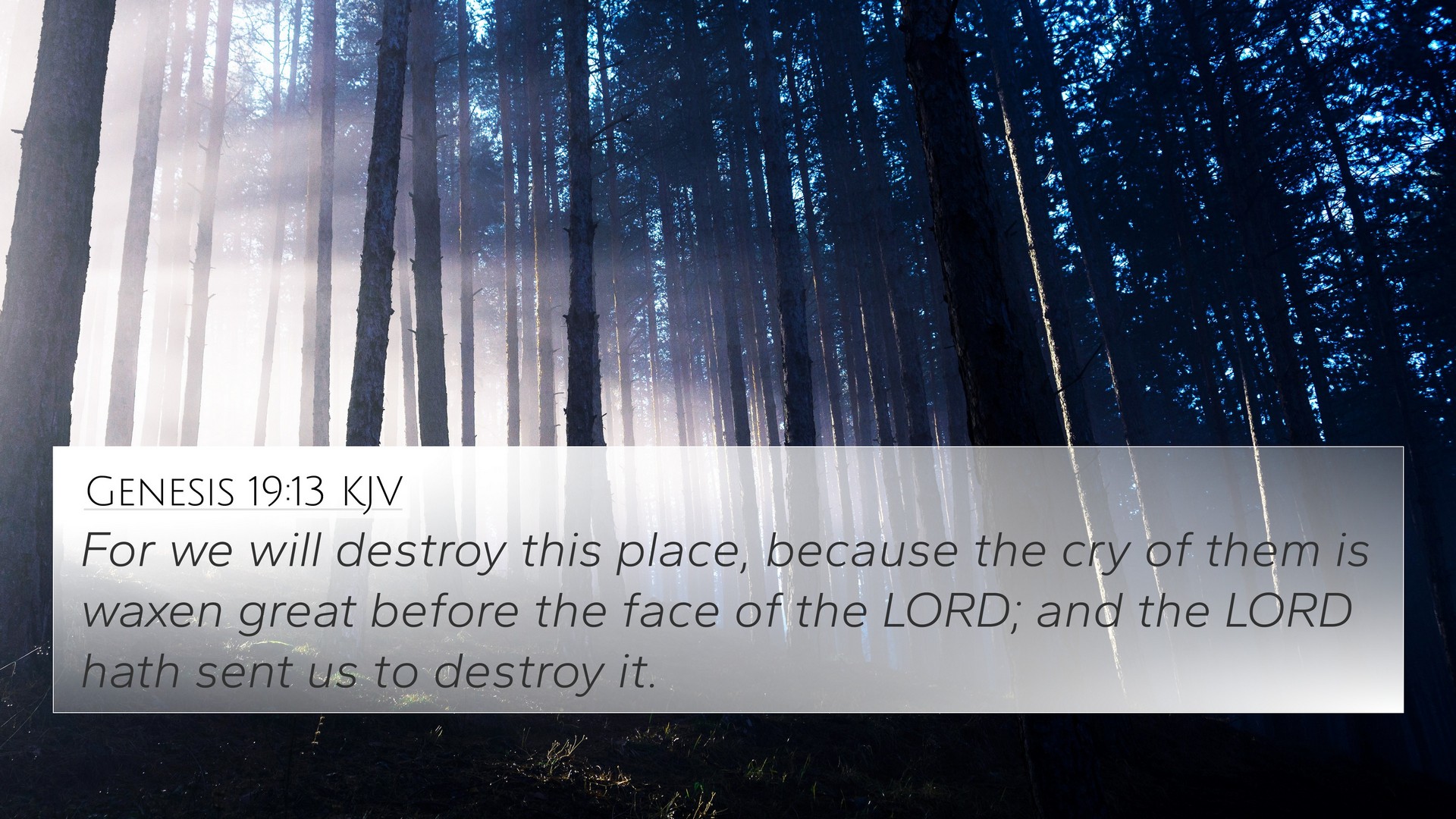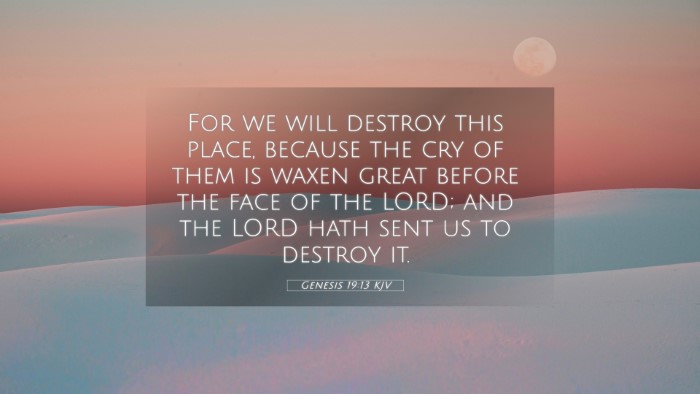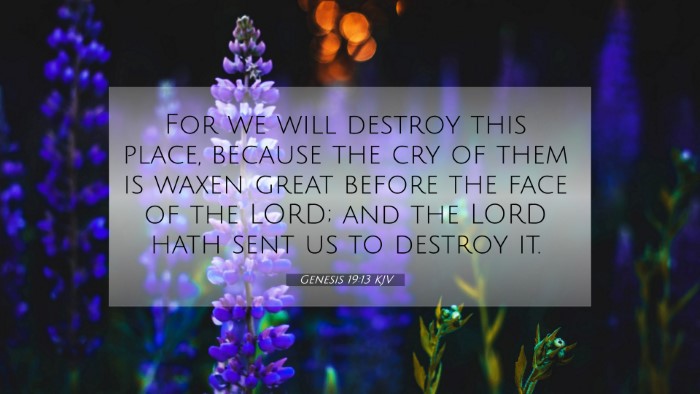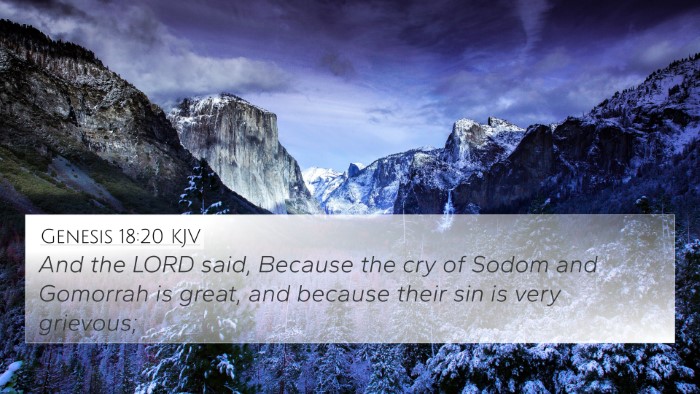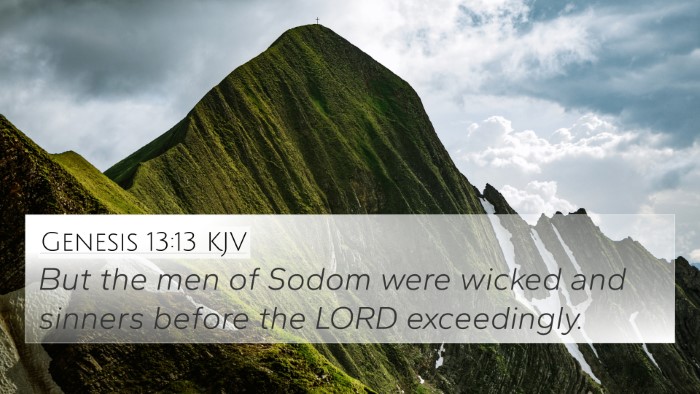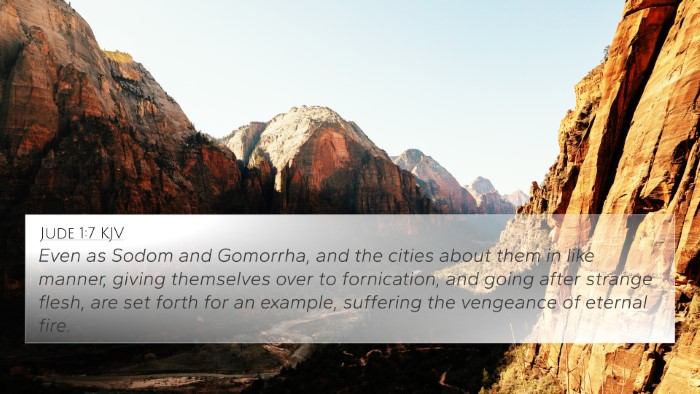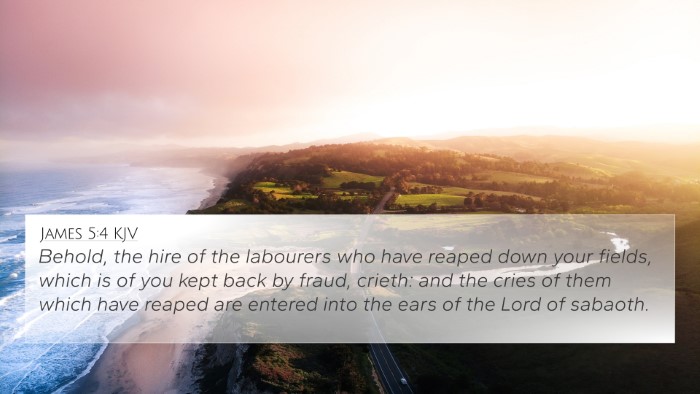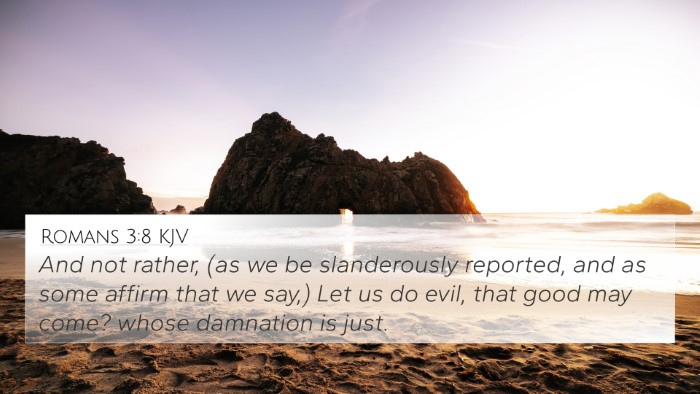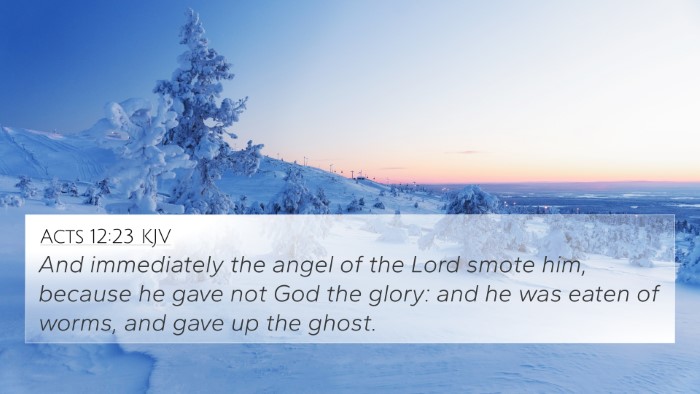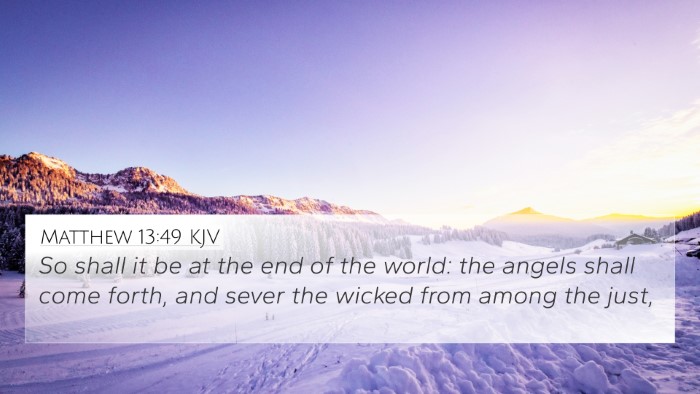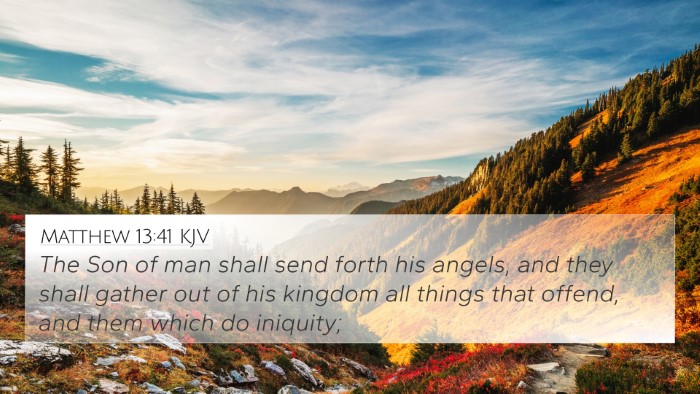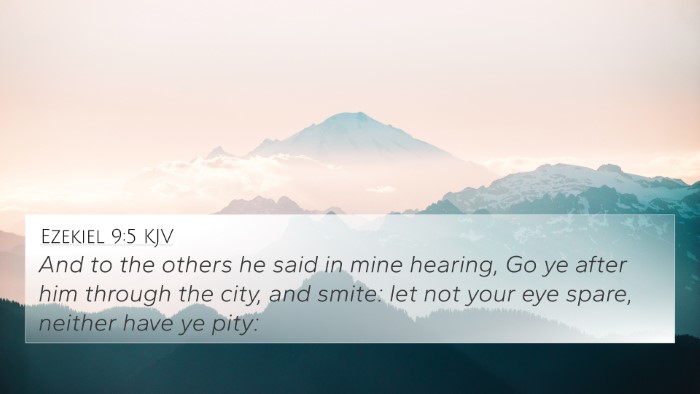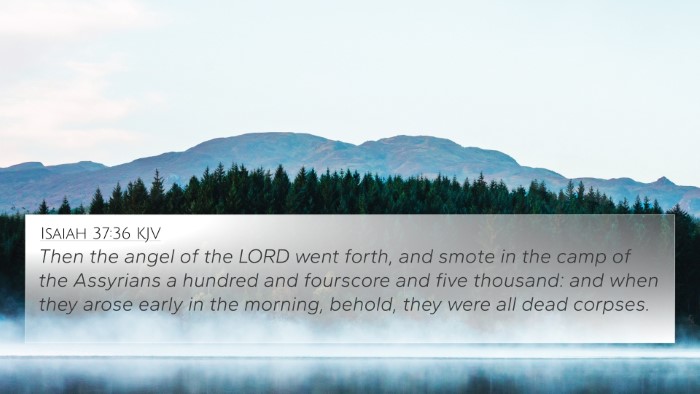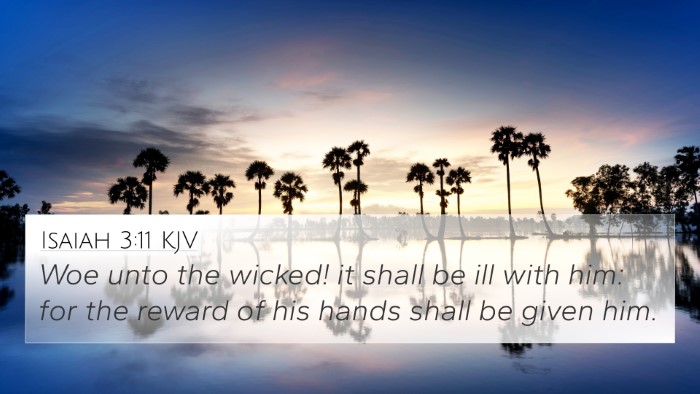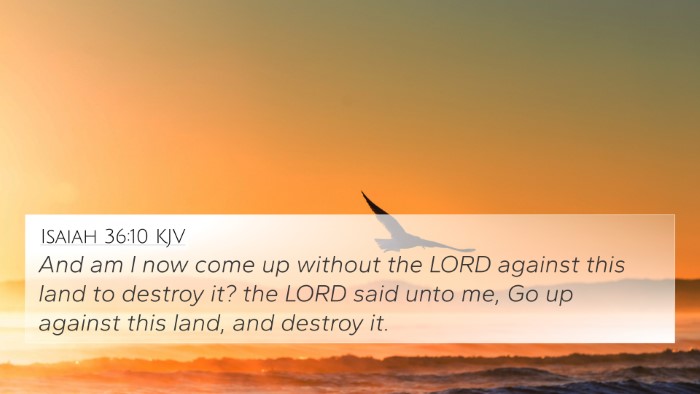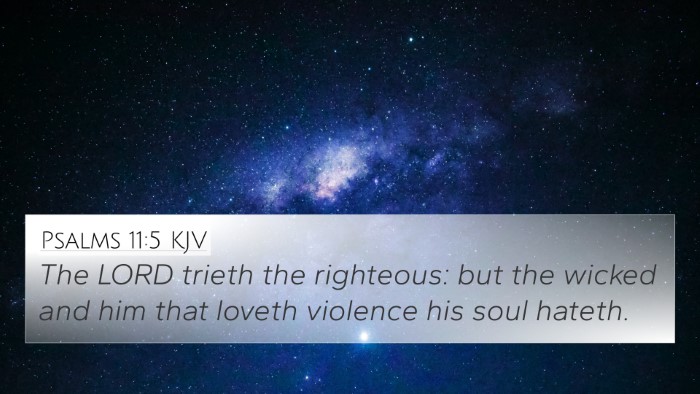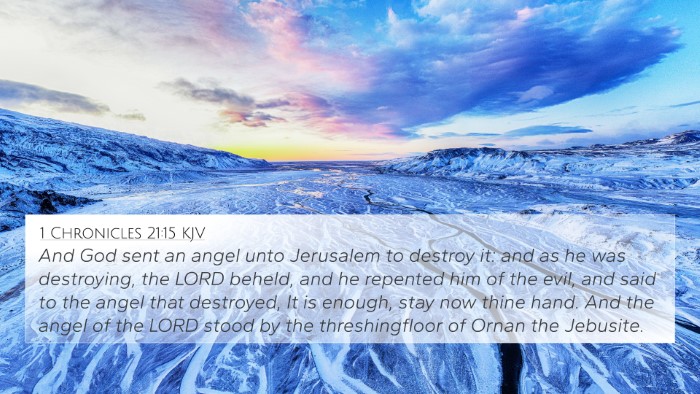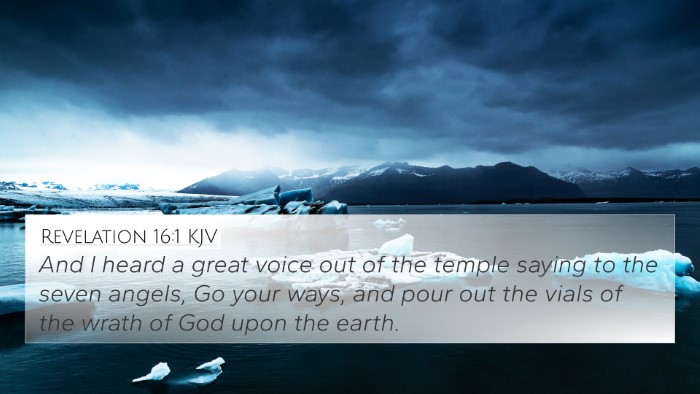Meaning and Explanation of Genesis 19:13
Genesis 19:13 states: "For we will destroy this place, because the cry of them is waxen great before the face of the Lord; and the Lord hath sent us to destroy it." This verse occurs within the narrative of the destruction of Sodom and Gomorrah, where two angels sent by God inform Lot of the impending judgment on the cities due to their grievous sinfulness.
Summary of Context
The context of Genesis 19 involves the divine judgment against Sodom and Gomorrah, representing total depravity. The angels reveal the severity of the sins committed by the residents, prompting God's decision to destroy the cities. This moment is pivotal in demonstrating God's justice, mercy, and the consequences of sin.
Insights from Public Domain Commentaries
-
Matthew Henry:
Henry emphasizes the sincerity and urgency in the angels’ warning to Lot. The term “cry” signifies the innocent suffering that has risen to God, a crucial aspect of divine judgment. The idea of destruction is framed as a response to the unbearable iniquities that have inflicted pain on the innocent, highlighting God's righteousness in judgment.
-
Albert Barnes:
Barnes remarks on the phrase "waxen great," indicating an accumulation of sin that reached a tipping point. He notes that God’s judgment is both just and necessary when wickedness reaches a level intolerable by divine standards. Barnes connects this event to the broader theme of divine retribution found throughout Scripture.
-
Adam Clarke:
Clarke provides insight into the angels’ mission, explaining that they are vessels of God’s judgment but also His mercy towards Lot and his family. Lot's distress and the imminent danger highlight the need for divine intervention, underscoring God's compassion amidst judgment. Clarke also references the historical understanding of Sodom's sin.
Bible Cross References
Genesis 19:13 can be connected to several other biblical texts that echo these themes of sin, judgment, and divine mercy:
- Matthew 10:15: “Verily I say unto you, It shall be more tolerable for the land of Sodom and Gomorrha in the day of judgment, than for that city.”
- 2 Peter 2:6-8: “And turning the cities of Sodom and Gomorrha into ashes condemned them with an overthrow, making them an example unto those that after should live ungodly.”
- Luke 17:28-30: “Likewise also as it was in the days of Lot; they did eat, they drank, they bought, they sold…”
- Romans 1:18-32: details the consequences of turning away from God, leading to divine judgment similar to that faced by Sodom and Gomorrah.
- Isaiah 1:9: discusses the remnant and divine judgment, akin to the fate of Sodom.
- Jeremiah 23:14: mentions the wickedness of Jerusalem in a manner parallel to Sodom’s, illustrating a broader theme of divine retribution.
- Revelation 11:8: refers to Sodom symbolically as a representation of moral decay.
- Jude 1:7: “Even as Sodom and Gomorrha, and the cities about them, in like manner, giving themselves over to fornication…”
- Ezekiel 16:49-50: provides a deeper understanding of Sodom’s pride and its association with their ultimate downfall.
- Genesis 18:20-21: where God reveals His intention to investigate the outcry against Sodom before executing judgment, highlighting a process of divine justice.
Understanding the Message
The message of Genesis 19:13 is multifaceted. It serves as a sobering reminder of the consequences of sin while also showing the mercy granted to the righteous. The warning to Lot highlights the importance of heeding divine guidance in times of impending judgment.
Thematic Connections
This verse is part of a larger narrative theme that threads through the Bible, showcasing God's desire for repentance, divine justice, and the fate of nations that turn away from Him. The interconnection among these verses emphasizes the continuous call for righteousness and highlights the seriousness with which God regards sin.
Tools for Cross-Referencing
To study Genesis 19:13 and its implications further, employing tools for cross-referencing can enrich one’s understanding. Resources such as Bible concordance, Bible cross-reference guides, and Bible chain references can provide deeper insights into relational themes across scriptures.
Conclusion
The exploration of Genesis 19:13 reveals much about God's justice in contrast with His mercy. By understanding this verse and its context, along with cross-references, believers can appreciate the gravity of sin and the importance of adhering to God's will, making it a significant cornerstone for reflection in both the Old and New Testaments.
